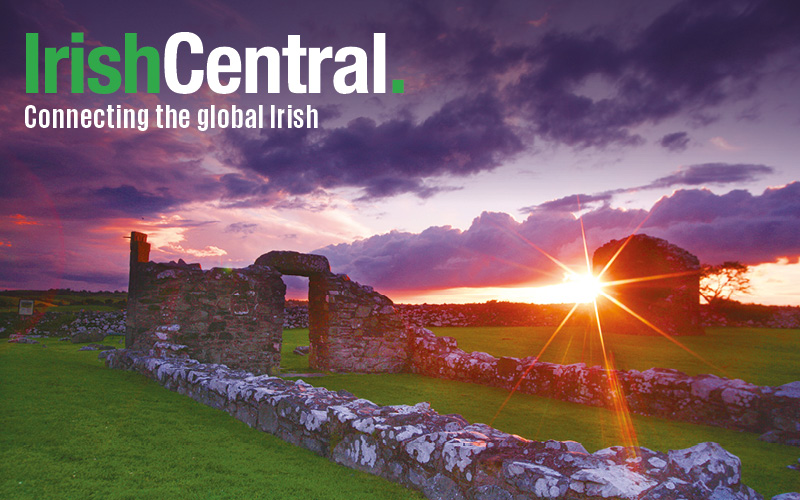In the month of Thanksgiving, Members of the Irish Community in San Francisco volunteered at the Quaker Food Pantry Program as a symbolic thank you for the actions of the Quakers during the Great Hunger in Ireland.
Pat Uniacke of the GAA explains why the volunteers chose to assist with the Quakers Food Pantry Program. “When the world turned its back on the Irish people in our darkest days, the Quakers shined a light on the suffering of the Irish. It’s important that we acknowledge and give thanks for their support in those terrible times”
Quakerism or Society of Friends as it is officially known, is a Christian religion that believes in the possibility of direct, unmediated communion with God and followers commit to living lives that outwardly attest to this inward experience. They believe that all people are equal before God and they have a strong commitment to peace.
During the Irish Famine, which claimed the lives of up to 2 million people, the Quakers distributed food to the needy in Ireland. They established soup kitchens in towns and a huge quantity of nutritious food was provided. The assistance given by the Quakers was about $19 million in today’s money, the majority of which came from Quakers in the United States.
In contrast, the British government did not give food free as they believed that the famine was an act of God and government should not intervene. Sir Charles Trevelyan, in his book The Irish Crisis, described the famine as 'a direct stroke of an all-wise and all-merciful Providence', one which laid bare 'the deep and inveterate root of social evil'. The British government did however intervene to protect the export to Britain of 480,000 pigs and over 180,000 cattle in 1846. On average throughout the famine period, the British Government was protecting the export of $13 million (in today’s money) of Irish food per month.
Fighting against impossible odds, Quakers themselves were personally involved in dispensing relief, which took its toll. At least 15 Quakers died as a result of famine-related diseases or from exhaustion. Their hard work saved thousands of lives. John O’Riordan of the California Democratic Party said “it is incredible that so many Quakers died while attempting to save the hungry in Ireland. By sacrificing their lives, they became martyrs for social justice in Ireland and their actions should never be forgotten”
The involvement of the Quakers was particularly important because it was direct aid, provided in the communities where it was most needed, and given without any religious or other stipulations, similar to the food distribution the Quakers provide in San Francisco today.
At the Quaker House on 9th Street in downtown San Francisco, the Irish volunteers began their day by visiting well known vendors who donated unwanted pre-packaged food to the Food Pantry program. The food was unloaded and assembled in the Quaker house where a grocery store atmosphere was established. Vegetables and fruits are placed into large buckets, cans were sorted, and packets of pasta were stacked high.
The Pantry on average serves well over 100 families or clients each Saturday. Clients are slotted into twenty-minute windows in which they can shop. Each client usually brings one or two bags to fill up with groceries for the week. They walk around the “grocery store” and select items for the week. For most folks, the Pantry is their only source of fresh fruits and vegetables, as well as staples like bread or pasta.
At approximately 12 Noon, the Pantry opened its doors and the first clients shuffled in. Most of the clients are elderly and several are homeless. The Quaker Food Pantry affords them regular access to healthy, fresh food. During the shopping hour, the Irish volunteers took up stations at different parts of the grocery store.
Shane O’Reilly, Treasurer of the SF Irish Famine Memorial Committee said “Working with the Quakers was a very fulfilling experience. Among the themes of our Great Hunger Memorial will be to remind us of our commitment to the hungry throughout the world just as the Quakers continue to support the poor in San Francisco. In a world of plenty, nobody should go hungry.”




Comments